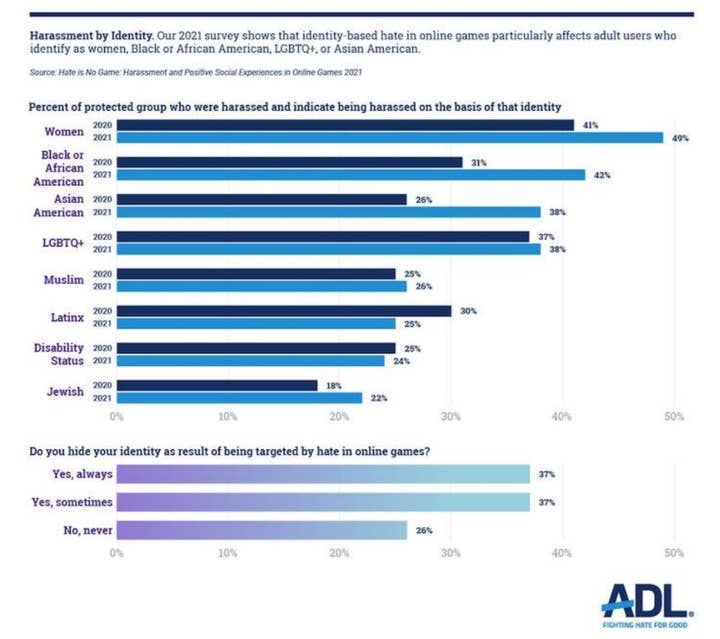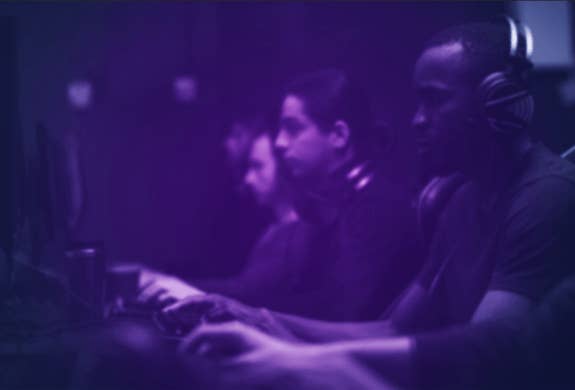Anti-women, anti-Black, anti-Asian harassment growing in online games
ADL-Newzoo survey notes spike in US gamers reporting certain types of harassment; 60% of teens say they were harassed while playing
2021 saw a significant uptick in certain types of harassment in online game spaces, according to a new survey from the Anti-Defamation League conducted in cooperation with Newzoo.
The survey covered more than 2,200 US gamers up to the age of 45 who play online multiplayer games, nearly 550 of them between the ages of 13 and 17.
While 99% of respondents said they had some form of positive social experience while playing online games, it was clear for many their experiences were not uniformly positive.
83% of the adults said they had been harassed while playing online in the past six months, while 60% of the teen cohort said the same.
The most common form of identity-based harassment was aimed at women, just as it was in previous years the ADL ran such a survey. However, the percentage of people reporting that harassment rose from 41% of women last year to 49% this year.
Other groups seeing a surge in identity-based harassment were Black gamers (42% this year compared to 31% last year) and Asian players (38%, up from 26%).
This identity-based harassment occurred despite 37% of people from protected groups saying they always hide their identity when playing online, and another 37% saying they do so sometimes.

As for which games fostered the most problems, Valorant and Dota 2 top the list for the second straight year, with 79% and 78% of players respectively reporting harassment in the game.
Minecraft was the game with the least percentage of players reporting harassment, but even then it was an experience shared by 46%. That was well ahead of the next lowest title for harassment, Rocket League, which made strides in dropping the percentage of players experiencing harassment from 76% last year to 59% this year.
The percentage of players who reported quitting playing certain games because of disruptive player behavior also increased for the second straight year, up to 27% from last year's 22%.
Valorant and Call of Duty shared the title for driving the most players away, with 42% of players of each game saying they either became more careful or stopped playing them entirely because of the behavior they'd experienced in the games.
The survey also reported growing instances of doxing (personally identifying information made public) and swatting (a stranger making a false report to emergency services about someone). Last year 13% of respondents said they were doxed and 12% said they were swatted. This year the numbers were 22% and 20%.
The ADL acknowledged that it included responses from players who "reported something similar to either behavior or who preferred not to elaborate." It also included quotes from four different survey respondents that fit the usual concept of the terms.
As for what can be done to improve these numbers going forward, the ADL is recommending game publishers to release regular and consistent transparency reports about hate and harassment in their communities and submit to independent audits of their content moderation practices.
The group also called for some sort of ESRB-like audit to give people metrics about toxicity and extremism in online games that could be used by people to make informed decisions. Additionally, the ADL noted the prevalence of stories about toxic workplaces, saying they can normalize attitudes around unacceptable behavior that wind up reflecting in what's allowed in games.
Within games themselves, the ADL wants to see better content moderation tools for voice chat and reporting systems and employees to give live, real-time support for targets of severe harassment.

